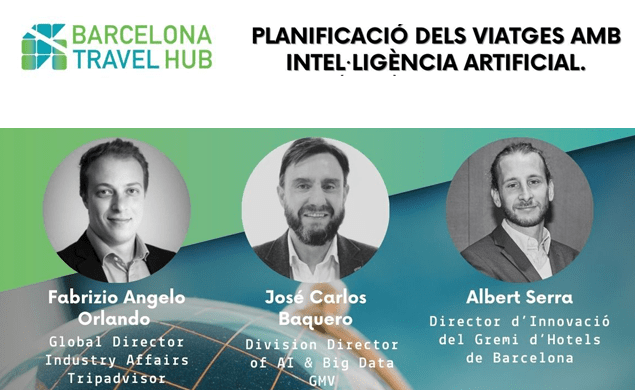AI in Tourism: Innovation and Ethics

In today’s increasingly digitalized world, artificial intelligence (AI) is emerging as a disruptive force across various sectors, and tourism is no exception. The recent presentation by José Carlos Baquero, head of Artificial Intelligence and Big Data at GMV’s Secure e-Solutions, explored the current reality of AI and its prospects for the near future in a Barcelona Travel Hub webinar entitled “Travel Planning and AI: Innovation and Ethics”. The expert highlighted the company’s strong position in this field as a developer of technological tools and a driver of projects with significant impact. He also shared his experience in advising on the current European AI legislation.
As Baquero explained, AI is part of our daily lives, although we are often not fully aware of its influence. AI is everywhere, from smartphones to self-driving cars and chatbots. The AI market is growing exponentially, and what we know now is just the beginning. Today’s AI is as rudimentary as it will ever be because it is constantly evolving. However, “this progress brings with it significant challenges that we must be prepared to face,” he said,
adding that one of the most critical aspects of this technology must be addressed because “it can affect our future in unforeseen and unintended ways.” Decisions based on AI recommendations can have a lasting impact on our society. In the travel industry, AI is revolutionizing customer service and personalizing experiences, but we need to ensure that it is being used safely and ethically. Because today’s AI is trained on historical data, it is not free from biases related to gender, race, and other factors. It is therefore essential to set limits and regulations for the development of AI applications to ensure that they are used responsibly and do not meet with public rejection, the GMV expert said in his concluding remarks.